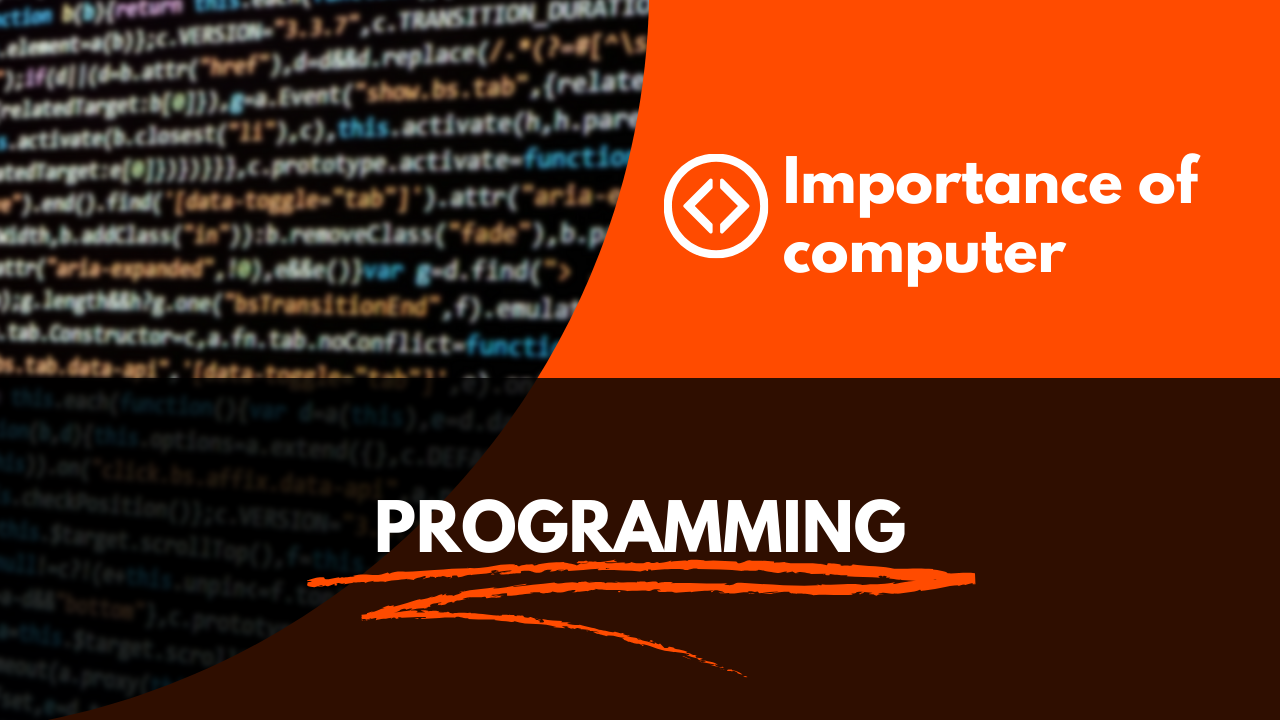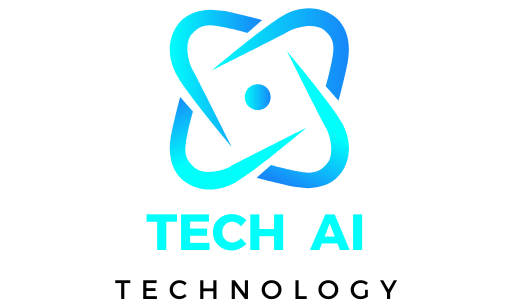Computer programming is the foundation of today’s digital world, powering everything from websites and mobile apps to artificial intelligence and automation. For beginners, learning to code opens doors to high paying tech careers and endless innovation. Whether you’re diving into Python, JavaScript, or C++, understanding programming fundamentals is essential for building software, developing websites, and even creating AI driven applications.
This guide will walk you through the basics of coding, popular programming languages, and industry trends, helping you start your journey as a developer. If you’re in the U.S. and looking to break into tech, now is the perfect time to master programming skills and future proof your career.
Computer Programming: A Beginner’s Guide to Coding and Software Development
What is Computer Programming?
Computer programming is the process of writing instructions that a computer can understand to perform specific tasks. It involves coding, debugging, and optimizing software to create applications, websites, and AI powered systems. Programming is the backbone of modern technology, enabling automation, artificial intelligence, and digital transformation.
Developers use various programming languages like Python, JavaScript, and C++ to build functional and efficient software. Learning to program opens doors to high paying jobs, innovative projects, and endless career growth.
The Importance of Learning Computer Programming
In today’s digital age, programming is more than just a skill it’s a necessity. Businesses, startups, and tech companies rely on software to automate processes, analyze data, and create user friendly applications. From web development and game design to cybersecurity and artificial intelligence, programming is at the core of technological advancements.
Knowing how to code enhances problem solving abilities, logical thinking, and creativity. It also provides job security, as software development is one of the fastest growing industries in the U.S. Whether you’re a student, an aspiring developer, or an entrepreneur, learning to code can future proof your career and expand your opportunities.
Popular Programming Languages and Their Uses
Different programming languages serve different purposes, making it essential to choose the right one for your goals. Python is widely used in data science, AI, and automation due to its simplicity and versatility. JavaScript is the backbone of web development, powering interactive websites and modern web applications. C++ is a powerful language used in game development, high performance computing, and system programming.
Java remains a top choice for mobile app development, particularly for Android applications. SQL is essential for database management, while Swift is preferred for iOS development. Learning multiple programming languages increases career flexibility and enhances coding skills.
How to Get Started with Computer Programming
Starting your programming journey requires choosing the right language, learning coding fundamentals, and practicing problem solving. Online platforms like Codecademy, freeCodeCamp, and Udemy offer beginner friendly courses in Python, JavaScript, and more. Hands on practice through projects, coding challenges, and open source contributions helps reinforce concepts and improve coding efficiency.
Understanding algorithms, data structures, and debugging techniques is crucial for writing optimized code. Setting clear goals, building real world applications, and staying updated with the latest programming trends are key to mastering coding skills.
Future Trends in Computer Programming
The future of programming is driven by artificial intelligence, automation, and emerging technologies. AI powered coding assistants, low code and no code platforms, and blockchain development are reshaping software engineering. Cloud computing, machine learning, and cybersecurity remain top trends in the programming world.
The demand for skilled developers continues to grow, making programming one of the most lucrative and future proof career paths. As technology evolves, programmers must continuously learn and adapt to new tools, frameworks, and programming paradigms.
Computer programming is not just about writing code it’s about solving problems, creating innovative solutions, and building the future of technology. Whether you want to develop mobile apps, work in AI, or become a full stack web developer, learning programming is the first step toward achieving your goals. 🚀
What is Computer Programming?
Computer programming is the process of writing instructions that a computer can understand and execute. These instructions, also called code, tell the computer how to perform specific tasks. Programming enables the development of software applications, websites, and systems that power modern technology. It is the foundation of all digital innovations, from mobile apps to artificial intelligence.
How Code Translates into Machine Readable Commands
Computers only understand binary code, which consists of ones and zeros. However, programmers write code in high level programming languages like Python, Java, or C++. A compiler or interpreter converts this code into machine language that the computer can execute. This translation process ensures that human readable code turns into precise, executable instructions.
Difference Between Software Development and Programming
Programming focuses on writing and testing code to solve specific problems. Software development, on the other hand, is a broader process that includes planning, designing, coding, testing, and maintaining software applications. A software developer oversees the entire lifecycle, while a programmer primarily writes and optimizes code.
Overview of the Coding Process
- Writing Code: Programmers create instructions using a programming language.
- Testing: The code is run to check for errors and ensure proper functionality.
- Debugging: Bugs and errors are identified and fixed to improve performance.
- Deploying: Once tested, the program is released for users or integrated into a system.
The Importance of Learning Programming

High Demand for Programmers in Various Industries
Programming skills are in high demand across multiple industries. Companies need developers for web development, data analysis, and AI technologies. Businesses rely on software to automate processes and improve efficiency. The tech industry is growing fast, creating more job opportunities for programmers. Learning to code opens doors to many career paths in IT and beyond.
Role of Programming in Automation, AI, and Web Development
Coding powers automation, artificial intelligence, and modern web applications. AI driven systems rely on programming languages like Python and JavaScript. Websites and mobile apps require front-end and back-end development skills. Automation reduces manual work and increases productivity in businesses. Mastering programming helps professionals build innovative digital solutions.
Problem solving and Logical Thinking Benefits
Programming enhances problem solving and logical reasoning. Developers break down complex problems into smaller, manageable tasks. Coding improves analytical thinking and decision making skills. Writing efficient algorithms trains the brain to think critically. These cognitive skills benefit various fields, from engineering to business management.
Job Security and Lucrative Career Opportunities
Tech jobs offer strong job security and high salaries. The demand for software engineers, web developers, and data scientists is increasing. Companies seek skilled programmers to build and maintain digital systems. Freelancing and remote work opportunities make programming a flexible career choice. Investing in coding skills ensures long term career stability.
How Coding Helps in Innovation and Technology Advancements
Programming drives innovation in technology and digital transformation. Software development leads to breakthroughs in healthcare, finance, and entertainment. Coding skills allow individuals to create new applications and smart devices. Startups and tech giants constantly seek skilled programmers to innovate. Learning to code empowers individuals to shape the future of technology.
Popular Programming Languages and Their Uses
General Purpose Languages
Python AI, Machine Learning, Automation, and Data Science
Python is one of the most versatile programming languages. It is widely used in artificial intelligence (AI), machine learning, and data science. Developers prefer Python for automation, scripting, and backend development. With extensive libraries like TensorFlow, NumPy, and Pandas, Python simplifies complex computations. Companies use Python for building scalable applications and handling big data processing.
JavaScript: Web Development, Front-End and Back-End Applications
JavaScript powers interactive websites and web applications. It is the backbone of modern front-end frameworks like React, Angular, and Vue.js. With Node.js, JavaScript extends to backend development, enabling full stack capabilities. Developers use JavaScript for dynamic user interfaces, responsive designs, and real time applications. It remains essential for creating web based software solutions.
C++ Game Development, System Programming, and High Performance Applications
C++ is known for its speed and efficiency. It is heavily used in game development, embedded systems, and real time applications. Game engines like Unreal Engine rely on C++ for rendering high performance graphics. System programmers use C++ to build operating systems, compilers, and database engines. It is crucial for applications demanding optimized performance and resource management.
Java: Mobile Development (Android), Enterprise Applications
Java is a widely used object oriented language, mainly for Android app development. It provides cross platform compatibility with the Java Virtual Machine (JVM). Many enterprises rely on Java for building large scale applications, cloud computing, and banking systems. Frameworks like Spring Boot simplify backend development, making Java a preferred choice for scalable applications.
Specialized Programming Languages
Swift: iOS and macOS Application Development
Swift is Apple’s programming language for iOS and macOS app development. It is designed for safety, speed, and modern app functionality. Swift replaces Objective-C, offering better performance and developer friendly syntax. Popular apps like Instagram and Uber leverage Swift for smooth, high performance mobile experiences.
Kotlin: Android App Development
Kotlin is Google’s preferred language for Android development. It offers modern syntax, null safety, and full Java interoperability. Many developers transition from Java to Kotlin to build efficient and maintainable Android apps. Companies like Pinterest and Netflix use Kotlin to enhance mobile app performance.
SQL: Database Management and Data Querying
SQL (Structured Query Language) is essential for managing relational databases. It allows developers to retrieve, update, and analyze structured data efficiently. SQL powers database engines like MySQL, PostgreSQL, and Microsoft SQL Server. Businesses use SQL for data analytics, transaction processing, and web applications requiring structured data storage.
R: Data Science and Statistical Computing
R is a powerful language for data analysis, statistical modeling, and visualization. It is widely used in academic research, finance, and healthcare analytics. With libraries like ggplot2 and dplyr, R simplifies data manipulation and machine learning tasks. It is an essential tool for professionals in big data analytics and scientific computing.
Go: Cloud Computing and Backend Development
Go (Golang) is a high performance language developed by Google. It is optimized for cloud computing, microservices, and backend development. Companies like Uber and Dropbox use Go for building scalable web applications and distributed systems. Its simplicity, concurrency support, and efficiency make it ideal for cloud based infrastructures.
How to Get Started with Computer Programming
Choosing the Right Programming Language for Beginners
Getting started with coding begins with choosing the best programming language. Python is the top choice for beginners due to its simple syntax and vast community support. JavaScript is great for web development, while Java is popular for mobile applications. C++ and C# are ideal for game development.
Consider your goals before selecting a language. Research industry demand and project requirements to make the right choice.
Learning Coding Basics: Syntax, Loops, Functions, and Variables
Understanding programming fundamentals is essential for writing code. Syntax refers to the rules of a programming language. Loops help execute repetitive tasks efficiently. Functions allow you to organize reusable code. Variables store data for processing.
Mastering these concepts improves problem solving skills and logic building. Read the documentation and follow coding tutorials to strengthen your foundation.
Recommended Online Learning Platforms
Several online platforms provide interactive coding lessons. Codecademy offers hands on exercises in Python, JavaScript, and more. freeCodeCamp provides full coding courses with real world projects. Udemy features beginner friendly programming courses at affordable prices.
Coursera and edX offer university level coding programs. Choose a platform based on learning style and budget. Free and paid options are available to suit different needs.
Hands on Practice Through Projects and Coding Challenges
Practical experience is crucial for mastering programming. Start with small projects like building a calculator, a to do list, or a simple website. Participate in coding challenges on platforms like LeetCode, HackerRank, and CodeWars. Open source contributions help enhance skills and build a portfolio.
Experimenting with real world applications boosts confidence and creativity. The more you code, the faster you improve.
Importance of Debugging and Code Optimization
Debugging is a critical skill in software development. Identifying and fixing errors enhances code efficiency. Use debugging tools in IDEs like Visual Studio Code and PyCharm. Learn to read error messages and troubleshoot issues logically.
Code optimization improves performance by reducing execution time and memory usage. Writing clean, efficient code leads to better software quality. Always test and refine your code for the best results.
Core Concepts in Programming

a) Algorithms and Data Structures
What Are Algorithms and Their Role in Programming?
An algorithm is a step by step process to solve a problem. It plays a crucial role in software development, guiding computers to perform specific tasks efficiently. Programmers use algorithms to optimize performance, reduce execution time, and ensure accuracy. They are essential for sorting, searching, and data processing in applications.
Common Data Structures: Arrays, Linked Lists, Stacks, and Queues
- Arrays: Fixed size collections of elements stored in contiguous memory locations. Used in searching, sorting, and indexing operations.
- Linked Lists: Dynamic structures where elements (nodes) are linked using pointers. Efficient for insertions and deletions.
- Stacks: Follow the Last In, First Out (LIFO) principle. Used in recursion, function calls, and expression evaluation.
- Queues: Operate on the First In, First Out (FIFO) principle. Used in task scheduling, buffering, and process management.
Why Efficient Algorithms Are Essential for Performance
Efficient algorithms reduce computational complexity and enhance application speed. Poorly optimized code can lead to slow execution, high memory usage, and scalability issues. Techniques like Big-O analysis help in measuring efficiency, ensuring optimal performance for large scale applications.
b) Object Oriented Programming (OOP)
Key Principles: Encapsulation, Inheritance, and Polymorphism
- Encapsulation: Bundles data and methods into a single unit (class). Protects data using access modifiers (private, public, protected).
- Inheritance: Allows a class to derive properties from another class, promoting code reuse and reducing redundancy.
- Polymorphism: Enables multiple functions with the same name but different behaviors, improving code flexibility and maintainability.
How OOP Improves Code Efficiency and Reusability
OOP makes code modular, scalable, and easy to debug. It follows the DRY (Don’t Repeat Yourself) principle, reducing duplication. With OOP, developers build reusable components, streamlining software development.
c) Functional Programming
Differences Between Functional and Object Oriented Programming
- Functional programming focuses on pure functions, immutability, and higher order functions.
- OOP revolves around objects, classes, and state management.
- Functional programming avoids side effects, leading to predictable and reliable code.
Advantages of Functional Programming
- Immutability: Prevents unexpected data modifications.
- Concurrency friendly: Easier to implement in parallel computing.
- Higher order functions: Allow functions to be passed as arguments, improving code reusability.
- Better debugging: Pure functions make unit testing simpler.
Essential Tools and Resources for Programmers
Programming requires the right tools and resources to boost productivity and efficiency. Developers rely on code editors, version control systems, debugging tools, and online communities to enhance their coding experience. Below are seven essential tools and resources every programmer should use.
1. Code Editors and IDEs
A powerful code editor or integrated development environment (IDE) is essential for writing, testing, and debugging code. Here are the best options:
- VS Code: A lightweight yet powerful editor with extensions for multiple languages.
- PyCharm: Ideal for Python development, offering intelligent code completion and debugging features.
- IntelliJ IDEA: A top choice for Java developers with advanced refactoring tools.
- Eclipse: A versatile, open source IDE that supports multiple programming languages.
Using the right editor helps programmers write clean and efficient code. Features like syntax highlighting, autocomplete, and built in terminal support streamline development workflows.
2. Version Control Systems (Git and GitHub)
Version control is crucial for tracking code changes and collaborating with teams. The most widely used tools are:
- Git: A distributed version control system that enables developers to track changes in their codebase.
- GitHub: A popular platform for hosting and sharing repositories, collaborating with teams, and contributing to open source projects.
Using Git with GitHub helps developers maintain project history, resolve conflicts, and work efficiently in teams. Version control is a must have for software development.
3. Debugging Tools and Techniques
Debugging is an essential part of programming. Effective tools and techniques help developers find and fix errors quickly. Some must have debugging tools include:
- Chrome DevTools: Essential for web developers to inspect and debug JavaScript, HTML, and CSS.
- GDB (GNU Debugger): A powerful debugging tool for C and C++ programs.
- PyCharm Debugger: Helps Python developers analyze and fix issues in real time.
- Postman: Useful for debugging API requests and responses.
Effective debugging techniques, such as logging, breakpoints, and unit testing, help developers resolve bugs faster and improve code quality.
4. Best Forums and Communities for Programmers
Engaging with online communities is essential for learning, troubleshooting, and networking. Here are the best platforms for programmers:
- Stack Overflow: A massive Q&A site where developers can find solutions to coding problems.
- Reddit: Subreddits like r/programming and r/learn programming provide discussions, news, and resources.
- GitHub Discussions: A great place for developers to engage in technical discussions and contribute to open source projects.
- Dev. to: A blogging platform for developers to share insights, tutorials, and coding experiences.
Being part of an active programming community helps developers stay updated on industry trends, best practices, and coding challenges.
5. Package Managers
Package managers simplify software installation and dependency management. Essential package managers include:
- npm: The go to package manager for JavaScript developers.
- Pip: A must have for managing Python libraries.
- Homebrew: Helps macOS users install and manage software packages efficiently.
- Yarn: An alternative to npm that offers faster package installations.
Using package managers reduces setup time and ensures that projects have the latest dependencies.
6. Online Learning Platforms
Continuous learning is vital for programmers. The best platforms to sharpen coding skills include:
- Udemy: Offers affordable courses on various programming languages.
- Codecademy: An interactive learning platform with hands on coding exercises.
- Coursera: Features university level programming courses.
- freeCodeCamp: Provides free coding tutorials and projects.
These platforms help programmers improve their skills, learn new programming languages, and stay ahead in the industry.
7. Cloud Development and Collaboration Tools
Cloud based tools enhance collaboration and remote development. Essential tools include:
- GitHub Codespaces : A cloud based development environment for coding from anywhere.
- Google Colab: Ideal for Python and data science projects.
- Jupyter Notebook: A powerful tool for data analysis and visualization.
- Docker: Helps developers build, ship, and run applications efficiently.
Cloud development tools provide flexibility, allowing developers to work from any location without needing high end hardware.
Best Practices in Computer Programming

1. Writing Clean and Maintainable Code
Clean code is easy to read, understand, and modify. Use meaningful variable names, clear function structures, and proper indentation. Avoid unnecessary complexity and keep your code organized. Comment only when needed and ensure your logic is self explanatory. Readability improves debugging and future updates.
2. Following Coding Standards and Documentation Practices
Adhering to coding standards ensures consistency across projects. Follow language specific guidelines like PEP 8 for Python or Google’s JavaScript style guide. Write documentation for functions, classes, and modules. Use docstrings, README files, and inline comments to explain logic. Well documented code simplifies onboarding for new developers.
3. Using Version Control for Collaboration
Version control systems like Git help track changes, merge updates, and revert errors. Use platforms like GitHub or GitLab for team collaboration. Commit frequently with clear messages. Follow a branching strategy, such as Git Flow, to manage development and production versions. Proper version control prevents code conflicts and loss of progress.
4. Testing and Debugging Strategies
Software testing ensures code reliability. Use unit tests, integration tests, and functional tests to catch errors early. Frameworks like Jest, PyTest, and JUnit streamline testing processes. Debugging tools, such as Chrome DevTools and VS Code Debugger, help identify and fix issues efficiently. Regular testing reduces bugs and improves code stability.
5. Code Optimization Techniques for Performance
Efficient code runs faster and consumes fewer resources. Optimize algorithms and data structures to enhance execution speed. Reduce redundant operations and minimize memory usage. Use caching, lazy loading, and asynchronous processing where applicable. Profiling tools like Perf, Valgrind, and Chrome Performance Monitor help analyze performance bottlenecks.
6. Implementing Secure Coding Practices
Security vulnerabilities can lead to data breaches. Sanitize user inputs to prevent SQL injection and cross site scripting (XSS). Use encryption for sensitive data. Follow authentication and authorization best practices, such as OAuth and JWT. Regularly update dependencies to patch security risks.
7. Effective Code Review and Pair Programming
Code reviews improve code quality and reduce errors. Conduct peer reviews before merging code. Use pull requests to track changes and get feedback. Pair programming enhances problem solving and knowledge sharing. Teams that review code together build robust applications with fewer defects.
8. Continuous Learning and Skill Improvement
Technology evolves rapidly. Stay updated with the latest programming languages, frameworks, and tools. Participate in coding communities like Stack Overflow and GitHub. Read programming blogs, attend webinars, and contribute to open source projects. Continuous learning keeps developers competitive in the industry.
Career Paths in Computer Programming
Computer programming offers diverse career paths, each requiring specialized skills. Whether you’re interested in web development, software engineering, or artificial intelligence, programming careers provide lucrative opportunities. Here’s a detailed look at nine major paths in computer programming.
1. Web Development
Web development involves creating and maintaining websites and web applications. It is divided into front-end, back-end, and full stack development.
a) Front-End Development
Front-end developers focus on the visual and interactive aspects of a website. They use HTML, CSS, and JavaScript to create user friendly interfaces. Frameworks like React, Angular, and Vue.js enhance performance and user experience.
b) Back-End Development
Back-end developers handle the server side logic and database management. They work with Node.js, PHP, Python, and Ruby on Rails to ensure smooth functionality. APIs and database management systems like MongoDB, MySQL, and PostgreSQL are crucial in back-end development.
c) Full Stack Development
Full stack developers handle both front-end and back-end tasks. The demand for full stack developers is rising as companies seek professionals who can manage entire projects using technologies like MERN (MongoDB, Express, React, Node.js) and LAMP (Linux, Apache, MySQL, PHP) stacks.
2. Software Development
Software developers build applications for various platforms. This field includes desktop software, enterprise solutions, and system applications.
a) Desktop Application Development
Desktop software developers create applications for Windows, macOS, and Linux. Languages like C++, Java, and Python are commonly used. Popular software tools include Qt for C++ development and Electron.js for cross platform apps.
b) Enterprise Software Development
Enterprise level applications serve large organizations. They focus on scalability, security, and performance. Java, C#, and Python are commonly used for developing ERP (Enterprise Resource Planning) and CRM (Customer Relationship Management) solutions.
3. Mobile App Development
The mobile app industry is thriving, with high demand for Android and iOS applications.
a) Android Development
Android developers use Java and Kotlin to build apps for the Google Play Store. Tools like Android Studio and Jetpack Compose simplify development.
b) iOS Development
iOS developers create apps using Swift and Objective-C. Xcode and SwiftUI streamline the development process. Apple’s strict App Store guidelines ensure high quality applications.
4. Data Science and AI
Data science and AI involve processing large datasets to extract meaningful insights and build intelligent systems.
a) Machine Learning
Machine learning engineers use Python, TensorFlow, and PyTorch to develop predictive models. AI applications include chatbots, recommendation systems, and autonomous systems.
b) Data Analytics
Data analysts work with SQL, R, and Python to process and visualize data. Business intelligence tools like Tableau and Power BI help organizations make data driven decisions.
5. Cybersecurity
Cybersecurity is critical for protecting systems from cyber threats. Professionals in this field specialize in ethical hacking, penetration testing, and secure coding.
a) Ethical Hacking and Penetration Testing
Ethical hackers use Kali Linux, Metasploit, and Wireshark to identify vulnerabilities. Certifications like Certified Ethical Hacker (CEH) and Offensive Security Certified Professional (OSCP) enhance credibility.
b) Secure Coding Practices
Developers implement secure coding techniques to prevent attacks like SQL injection, cross site scripting (XSS), and buffer overflow. Programming languages like C, Java, and Python are optimized for security focused applications.
Future Trends in Computer Programming
1. AI Powered Coding Tools and Automation
AI is transforming software development. AI powered coding assistants like GitHub Copilot and ChatGPT help developers write code faster. Machine learning algorithms detect bugs and optimize performance. Automated testing and debugging reduce manual effort. AI driven tools streamline software development, making coding more efficient and accessible.
2. Low Code and No Code Development Platforms
Low code and no code platforms simplify application development. They allow non programmers to build software with visual interfaces. Popular platforms like Bubble and OutSystems enable rapid prototyping. Businesses use these tools to reduce development costs. As demand for digital solutions grows, these platforms will continue to evolve.
3. The Rise of Quantum Computing and Its Impact on Programming
Quantum computing is revolutionizing programming. Unlike classical computers, quantum systems process data at unprecedented speeds. Quantum algorithms solve complex problems faster. Programming languages like Qiskit and Cirq are emerging. As quantum hardware advances, developers must learn new techniques to harness its power.
4. Cloud Computing and Serverless Architecture
Cloud computing is the backbone of modern software. The serverless architecture eliminates infrastructure management. Developers deploy code without worrying about servers. Platforms like AWS Lambda and Google Cloud Functions optimize performance. This trend enhances scalability and reduces costs, making applications more efficient.
5. The Role of Blockchain in Software Development
Blockchain is reshaping software security and transparency. Smart contracts automate transactions without intermediaries. Decentralized applications (dApps) improve data integrity. Blockchain enhances cybersecurity by preventing fraud. As industries adopt blockchain, developers must integrate it into future applications.
6. Edge Computing for Faster Data Processing
Edge computing processes data closer to the source. This reduces latency and enhances real time performance. IoT devices and AI powered applications benefit from edge computing. Companies like NVIDIA and Intel are advancing this technology. Edge computing improves efficiency, especially for AI driven applications.
7. The Growth of DevOps and Continuous Integration
DevOps accelerates software development. Continuous integration (CI) and continuous deployment (CD) streamline updates. Tools like Jenkins and Docker enhance collaboration. Automated pipelines improve code quality. DevOps practices ensure faster software delivery with minimal errors.
8. Programming for Augmented and Virtual Reality (AR/VR)
AR and VR are revolutionizing user experiences. Developers use Unity and Unreal Engine to create immersive applications. AR powered mobile apps enhance shopping and healthcare. VR is transforming gaming and training simulations. The demand for AR/VR developers is rapidly increasing.
9. Cybersecurity Driven Development
Cybersecurity is a priority in modern programming. Secure coding practices prevent cyber threats. Developers use encryption and authentication techniques. AI enhances threat detection and response. As cyberattacks increase, security driven development becomes essential.
10. The Evolution of Multi Paradigm Programming Languages
Programming languages are evolving. Multi paradigm languages like Rust and Kotlin offer flexibility. They combine object oriented, functional, and procedural paradigms. Developers prefer these languages for efficiency and scalability. Future languages will continue to blend multiple paradigms for better performance.
Challenges in Learning and Mastering Programming

Common Struggles Faced by Beginners
Learning programming is exciting but challenging. Beginners often struggle with syntax errors, debugging issues, and understanding complex logic. Many find coding intimidating due to unfamiliar programming languages and confusing documentation.
Grasping programming concepts like loops, functions, and data structures takes time. Lack of structured learning can slow progress, making programming seem overwhelming.
Syntax errors are a major hurdle. A missing semicolon or incorrect indentation can break an entire program. Debugging these errors is frustrating, especially when error messages are unclear. Many beginners also face difficulties with problem solving and logical thinking. Writing efficient code requires understanding algorithms and breaking problems into smaller parts.
Overcoming Coding Frustration and Burnout
Coding frustration is common among beginners. Long debugging sessions, cryptic error messages, and slow progress can lead to burnout. Many new programmers feel stuck and lose motivation. To overcome this, it’s essential to take breaks, set achievable goals, and practice consistently.
Imposter syndrome affects many learners. Seeing others succeed faster can make beginners doubt their abilities. Comparing progress to others leads to discouragement. Instead, focus on personal improvement and celebrate small wins. Joining coding communities and forums can provide support and solutions to programming challenges.
A structured learning plan helps prevent burnout. Follow a step by step approach, starting with the basics. Practice with real projects to reinforce learning. Hands on coding exercises improve problem solving skills. Learning from coding tutorials, online courses, and interactive platforms can make programming easier.
Best Learning Strategies for Beginners
Starting with the right approach makes programming easier. Choose a beginner friendly programming language like Python or JavaScript. These languages have simple syntax and vast learning resources. Understanding fundamental programming concepts is more important than memorizing code.
Consistent practice is key. Solve coding challenges on platforms like LeetCode, Codewars, or HackerRank. Building small projects helps in applying knowledge. Real world applications make learning more engaging and effective.
Break problems into smaller steps. Debugging becomes easier when code is structured logically. Writing clean and readable code improves long term learning. Reading and analyzing open source projects can also help understand coding standards.
Learning in a community boosts motivation. Join coding boot camps, online forums, or local meetups. Engaging with experienced programmers provides guidance and mentorship. Asking questions and discussing coding problems helps in gaining deeper insights.
FAQs:
Q1. What is computer programming, and why is it important?
Computer programming is the process of writing instructions for computers to execute tasks. It is essential because it powers all digital applications, websites, and software, enabling automation, artificial intelligence, and problem solving in various industries.
Q2. Which programming language is best for beginners?
Python is often recommended for beginners due to its simple syntax, readability, and versatility. Other beginner friendly languages include JavaScript for web development and Java for mobile applications.
Q3. How long does it take to learn programming?
The time required to learn programming depends on the language, individual effort, and prior experience. On average, beginners can grasp basic concepts in 3–6 months, while mastering programming takes years of practice.
Q4. What are the key skills needed to become a programmer?
Successful programmers need problem solving skills, logical thinking, attention to detail, and proficiency in at least one programming language. Understanding data structures, algorithms, and debugging techniques is also crucial.
Q5. What are the best online platforms to learn programming?
Popular platforms for learning coding include Codecademy, freeCodeCamp, Udemy, Coursera, and Harvard’s CS50 on edX. These offer interactive courses for beginners and advanced programmers.
Q6. Can I become a programmer without a degree?
Yes, many successful programmers are self taught or have completed coding boot camps. A degree can be helpful, but building projects, gaining real world experience, and mastering coding skills matter more in the tech industry.
Q7. What are the career opportunities in programming?
Programming offers careers in software development, web development, data science, AI, cybersecurity, game development, and mobile app development. Tech companies, startups, and freelancing opportunities are abundant.
Q8. What is the difference between front-end and back-end development?
Front-end development focuses on designing user interfaces (HTML, CSS, JavaScript), while back-end development handles server side logic, databases, and APIs (Node.js, Python, PHP). Full stack developers manage both.
Q9. How do I practice coding effectively?
Practice by working on real world projects, solving coding challenges on platforms like LeetCode, Codewars, and HackerRank, and contributing to open source projects. Building applications strengthen coding skills.
Q10. What are the future trends in computer programming?
The future of programming includes AI assisted coding, low code and no code development, blockchain applications, cloud computing, and the rise of quantum computing. Staying updated with new technologies is key to long term success.
Conclusion:
Computer programming is a valuable skill that powers modern technology, from web applications to artificial intelligence. Whether you’re a beginner learning your first language or an experienced developer, coding offers endless opportunities for growth and innovation.
With the right resources, practice, and dedication, anyone can master programming and build a successful career. The future of technology depends on skilled programmers—so start coding today and shape the digital world! 🚀

